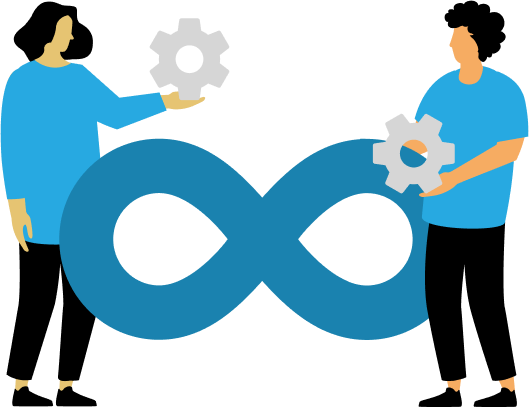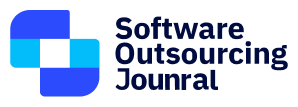These applications are of enormous importance in the wealth management arena for individuals and families aiming to optimize their financial health in a world of increasing financial literacy and management. Applications that support budgeting, investments, and general finance planning will be some of the features explained below. The blog explains the top wealth management applications and their functionalities and benefits, illustrating how users can achieve their financial goals.
Why Are Wealth Management Apps So Important?
Wealth management apps are high packed complete solutions for the money and other financial resources management in today’s complex economic environment. They let users track their investments, monitor expenses, and make planning for future needs. Here are some reasons why these apps keep growing in popularity:
1. Accessible
A wealth management app can be accessed at any time and location, and one can run their finances through an app on a smartphone or tablet to interact with their financial data, carry out transactions, and receive real-time alerts about market conditions. This way, the user is enabled to know his financial status and act appropriately in time.
2. Overall Finance Analysis
Wealth management apps generally offer a whole view of someone’s financial life by consolidating multiple accounts into one single place. It encompasses everything, including bank accounts, investment portfolios, and credit cards, in one place so that there is transparency and clarity with regard to net worth and spending habits. It is easier to make decisions about budgeting and investing once users can see their entire asset and liability picture in one place.
3. Automated Tracking and Reporting
Most applications of wealth management are capable of automatically tracking expenses and offering reports on how money has been spent. This automation saves time and reduces the likelihood of human error when tracing finances. One can set up categories for his expenses such that he can see through where his money goes every month without having to enter it manually.
4. Investment Management
For wealth that is to grow, many apps have features of investment tracking: that assist users in keeping track of how their portfolios are performing. Some also offer automated investment options, called a robo-advisor; these technologies manage investments based on the risk tolerance and pre-set goals by a user. This option is very helpful for new investors who do not have knowledge to manage their portfolios actively.
5. Goal Setting and Financial Planning
Most wealth management apps have built-in tools for users to set financial goals, including retirement savings, buying a home, and college funds for their children, and track progress toward those goals. Many apps will also enable users to design detailed savings plans with timelines, deadlines, and even milestones in order to keep themselves motivated.
What to Look for in a Wealth Management App?
When choosing a wealth management app, look for the following:
1. User Interface
User-friendliness is crucial in ensuring that the users navigate through the app with ease. Intuitive design of apps should, therefore, comprise user-friendly elements, which easily allow users to use key application features without undergoing any elaborate training program. The good arrangement from which clear icons can well be distinguished will eventually lead to a great user experience.
2. Data Security
Since the financial information may be quite sensitive, good protection should accompany it as well. Proper encryption protocol in the app and two-factor authentication are advisable to secure user data. Regular security updates must also come about to avoid possible breaches.
3. Integrated Features
Being able to connect with many types of financial institutions so that one gets a picture of their own money is very important. Of course, one would find apps that support connection with multiple banks, various investment platforms, and even credit card companies. This allows for real time data updates and avoids having to enter it manually.
4. Customization Options
Customization allows the user to modify the application in accordance with their requirements or preferences. Customizable dashboards as well as customizable alerting systems that are based on user requirement will indeed be able to provide more effective experience for users because the information will be available at the most appropriate time.
5. Reporting and Analytics
Advanced reporting will enable you to create sophisticated reports about your spendings and investment performance and give you a sense of how your overall financial health is.
Compare any applications offering visual analytics in forms of charts and graphs so complicated data-sets can be easily interpreted.
Types of Wealth Management Apps
There exist various types of wealth management apps which cater for a particular need:
1. Budgeting Apps
Budgeting apps encourage the growth of a user’s ability to track their income and expenditures. Most budgeting apps allow users to categorize expenses, set goals, and send reminders about spending limits. All these features help the user to spend wisely and save.
2. Investment Tracking Apps
Such apps are specifically designed to keep track of investment portfolios. These apps help a user track performance over equity, mutual funds, ETFs, and other types of assets, and many will also provide alerts on market conditions. Most investment tracking apps also update the users about market trends and news that would influence the performance of a portfolio.
3. Robo-Advisors
Robo-advisors represent a full automation of the investment process in which algorithms control portfolios according to user-defined objectives and risk profile. They typically require minimal user intervention after setup, but they do indeed provide useful insights into portfolio performance over time.
4. Integrated Wealth Management Platforms
These platforms integrate budgeting, investment tracking, retirement planning, tax optimization, and estate planning into one cohesive solution. These are perfect for those who wish to have a multi-faceted approach to wealth management that not only manages money but also considers every aspect of their financial lives.
Why Organizations Need to Invest in Wealth Management Apps?
Here are some benefits that an organization gets with an investment in a wealth management app:
1. Increased Financial Consciousness
These apps enlighten users on how to spend wisely, make smart savings, and invest more intelligently by giving an even clearer picture about the financial situation at hand. One would be able to pinpoint any area where he or she needs to cut back or invest more heavily through real-time data.
2. Enhanced Financial Discipline
Budgeting features promote the adhering behavior of the users by limiting the categories of expenses and sending reminders toward the reaching the limits. Such self-discipline is indispensable when the long-term goals to be achieved include putting aside savings for retirement or simply paying off debt.
3. Time Saving
Automated routine expense tracking and report generation free up time to be re-allocated towards more strategic planning or outside-of-work personal activities outside of finance management.
4. Achieving Goals
Goal setting and features that offer progress tracking ensure the users remain motivated while they work towards achieving their financial goals, saving for a vacation, or establishing an emergency fund.
Choosing the Best App for Wealth Management:
To choose the best wealth management app according to your needs, you should consider the following factors below:
1. Assess Your Needs
Before visiting what’s available in the market today, determine what exactly is required concerning budgeting, investment tracking, or retirement planning. The more you know about your needs, the more you’ll be able to filter and identify your choices effectively.
2. Evaluate Features
Compare various software solutions along the features/functions offered—particularly note what each solution brings forth in robust reporting capabilities/predictive analytics/scenario planning tools/user-friendliness, etc., which align the best with identified needs!
3. Check User Reviews
Research user reviews/testimonials from other businesses who have used chosen solutions before—this feedback proves invaluable insight into experiences had when using those products, besides highlighting potential drawbacks encountered at different points.
4. Ask for Demos or Trials
Use free trials/demos provided by vendors such that one can experience functionality before committing fully-fledged this gives an actual hand’s on experience to judge usability/fit in the organizational context better than mere reading of descriptions alone!
The Future of Wealth Management Apps
As technology is progressing at rocket speed in the finance world today, we can say that there will be further developments in wealth management applications! Here are the trends that shape the future landscape:
1. More Advanced AI
Understanding AI will keep improving, largely through the use of machine learning algorithms that scan massive amounts of data at unprecedented speeds and bring personalized recommendations based on user behavioral patterns. For instance, AI can suggest a correctly tailored investment strategy according to an individual’s risk appetite or investment intentions.
2. More Security Measures
As the apprehension about data privacy/security breach increases, developers will look at implementing advanced encryption techniques/biometric authentication methods that keep sensitive information locked away during transactions made on these applications!
3. Integration of Other Financial Tools
Future applications will likely blend well with other applications of software including accounting systems/ERP platforms so that they are in a position to offer views on comprehensive bases spanning all aspects of relationships and directing them toward business operations established therein while coming up with effective solutions to unique challenges encountered regularly by processes established therein moving forward over time easily!!!
Popular Features in Top Wealth Management Apps
Now, let’s examine one of the famous features found in the best platforms and why they make some wealth management applications stand out from the others:
1. Investment Performance Reporting Software
Such a feature helps a user assess how his or her investments are fairing relative to time periods against benchmarks or targets-pre-set. It allows areas of improvement to be brought into light while one celebrates successes made along the way.
2. Wealth Management Analytics
Advanced analytics capabilities empowering users, providing greater insight into the spending habits and investments’ performance-trends all towards enhancing overarching processes about decision-making processes undertaken regularly during each lifecycle established-thus effectively addressing unique challenges encountered regularly along the way!
3. Capital Management Software
For large portfolios, business needs, capital management software provides the tools necessary for asset allocation strategies to be optimized while taking minimum risks associated with market fluctuations. Maximum returns achieved over time will be ensured.
4. Best Portfolio Management Software
Most wealth management applications have good portfolio management functionality that enables users to track multiple investments in various asset classes-all while providing real-time updates regarding changes made within markets impacting overall value held therein-effectively addressing unique challenges encountered regularly along the way!
5. Financial Asset Management Systems Reviews
User reviews truly form an essential component when gauging the effectiveness provided through various systems that are entering the marketplace these days! Reading into reviews shared by others who have used specific solutions gives insight into the strengths or weaknesses experienced during the use process—hence aiding in some of the decision-making processes undertaken when selecting the best options provided forward towards effectively meeting the personal needs of individuals!
Conclusion:
The right wealth management app would enhance an individual’s ability to really manage finances effectively while providing valuable insights that drive strategic decision-making! Focusing on what specific needs one may have, or potentially evaluating various options based on key features, such as data-integrating capabilities, advanced reporting functionalities, or those involving predictive analytics tools, and the additional strategic considerations of incorporating user reviews, individuals can make the best choice for their ideal solution!
Be it high-end alternatives such as private banking software solutions or something even more innovative and future-perfect, like new wealth management startups, there is almost an overwhelming array of choices made available nowadays to meet different needs across industries today!
If you are looking to create an user-friendly and intuitive wealth management apps, we are here to help you. You can get in touch with us to know more about this.

Start a Project with Ajackus











































































